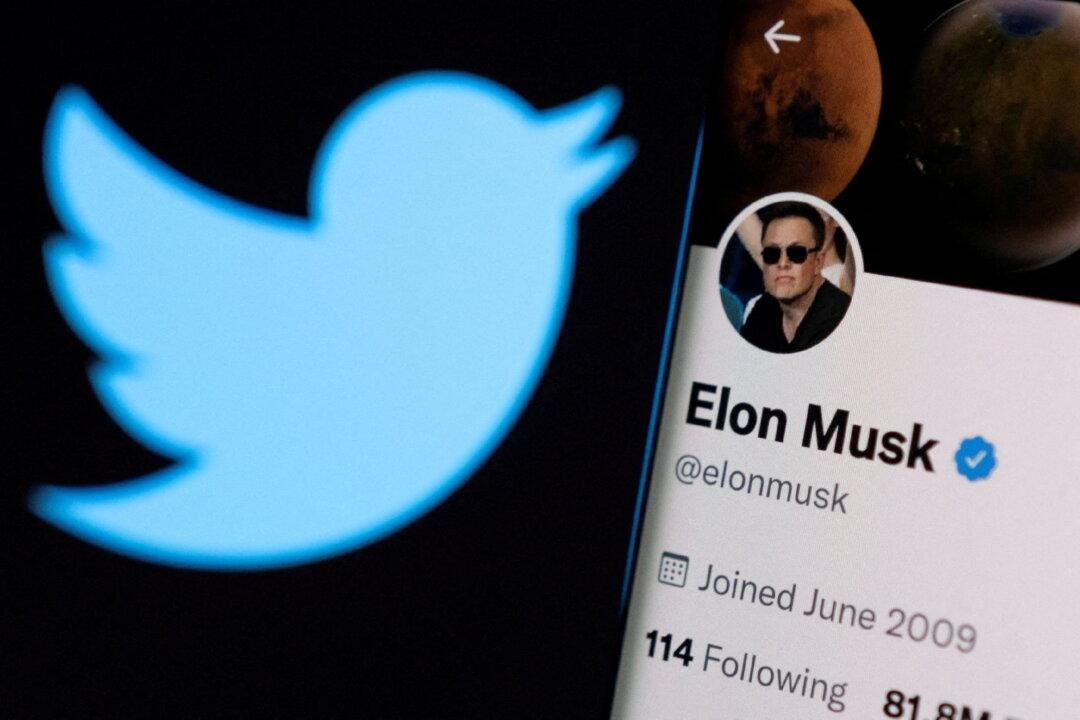Twitter’s newly released second quarter financial results show the social media giant’s revenue shrinking over the year and its net losses at a bigger-than-expected $270 million, with the company blaming its poor performance in part on Elon Musk.
Revenue shrank 1 percent year-over-year in the second quarter to $1.18 billion, Twitter said in a July 22 statement, while a Refinitiv survey of analysts expected $1.32 billion.





